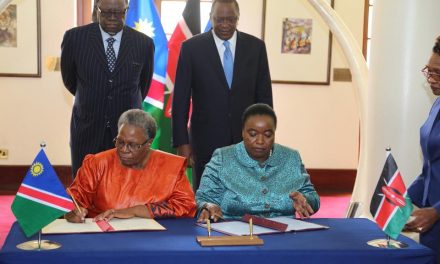
Rural communities ‘vulnerable to greedy wholesalers’
There is currently no law which regulates access to Namibia’s genetic resources and the protection of associated traditional knowledge, however, an interim committee has been set up to handle applications for the use of resources such as Devil’s Claw for commercial development. The Ministry of Environment and Tourism has started to draft legislation which will regulate access to genetic resources and the associated traditional knowledge, as provided for in the United Nations Convention on Biological Diversity.
The proposed Bill on Access to Biological Resources and Associated Traditional Knowledge is expected to be finalised this year.
“An interim mechanism has been established to prevent that opportunities to develop genetic resources into potential sources of income are missed, while simultaneously guarding against unlawful exploitation and bio-piracy. This interim committee handles applications for the use of Namibian genetic resources for commercial development until the Bill is passed,” said Netumbo Nandi-Ndaitwah, Minister of Environment and Tourism.
She added that access and benefit sharing is not new to Namibia, however, it is only recently that the issue received attention.
“The experiences of our own San people with Hoodia has shown us that merely owning resources and traditional knowledge will not guarantee wealth and livelihoods. More recent experiences of the Owambo people with Marula and the Ovahimba with Commiphora, are showing us that we need to assert our rights over these resources for the maximum benefit of our communities, who are the true custodians of these resources. Only by asserting and knowing our rights will we be able to join hands with the private sector to ensure that our communities benefit from the process of commercialisation as equal partners,” Nandi-Ndaitwah said.
Namibia has led Africa at international level in access and benefit sharing negotiations, which ended with the agreement of the Nagoya Protocol at the end of 2010. The country is expected to sign the protocol as soon as its own domestic legislation is finalised.
The United Nations Convention on Biological Diversity (CBD), adopted the Protocol on Access and Benefit Sharing on 29 October 2010 at the 10th Conference of Parties of the CBD in Nagoya, Japan. The Nagoya Protocol gives a framework on how to provide access to genetic resources for research or commercial applications and how to ensure compliance with the resulting access and benefit sharing agreements between providers and users.
According to Nandi-Ndaitwah, genetic resources and the traditional knowledge thereof as well as cultural heritage, are among the country’s greatest assets for development and can assist in reducing poverty and enhance the livelihoods of rural communities.
“It is perhaps these very people who most need to know and fully understand the value of the resources they are using on a daily basis. Because of lack of information and long -enduring poverty, our communities are vulnerable to greedy wholesalers and dealers who are only too happy to pick their raw materials at rock bottom prices.
“Therefore, there is a need to organise our communities into cooperatives, grower associations and conservancies. We need to give our people, our communities information and education to counteract this challenge,” concluded Nandi-Ndaitwah.
Namibia exports biological resources such as Devil’s Claw, Hoodia and Marula.









































